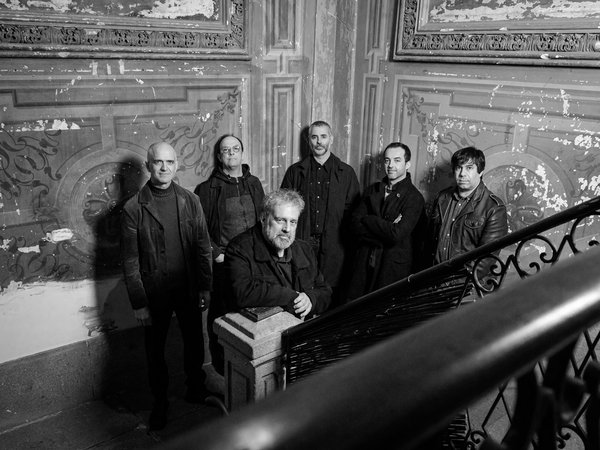This is a past event.
From Fascism to Far-Right Politics
From Fascism to Far-Right Politics
The term fascist is used to identify an authoritarian teacher, as a government that imposes a public health restriction (such as the use of a mask) or a boss who fires a worker. This ease in the use of the word worries Mão Morta. What do we talk about nowadays when we talk about fascism? What are its characteristics? What are its explicit and implicit dangers? What is the relationship between current fascisms and liberal democracies?
These and other questions should concern us. It is about them and the concept of fascism that they intend to focus on a conversation with Luís Trindade, director of the Institute of Contemporary History at Universidade NOVA de Lisboa, who published, among other books and articles: O Estranho Caso do Nacionalismo Português. O Salazarismo entre a Política e a Literatura. (The Strange Case of Portuguese Nationalism. Salazarism between Politics and Literature) (2008), and Silêncio Aflito. A Sociedade Portuguesa Através da Música Popular(dos anos 40 aos anos 70)(Distressed Silence: Portuguese Society Through Popular Music (from the 40s to the 70s) (2022), and Sílvia Correia, PhD from Universidade Nova de Lisboa, with a thesis on the memory policies of the First World War in Portugal, professor at the University of Porto and specialist in Contemporary History of Portugal and Europe, in the conflicts of the 20th century and their cultural effects.
25 FEB 2025
TUE 19:00
Free entry*
Duration 1h30
*with ticket pickup 15 min. before the session starts (subject to room capacity).
Pre-registration available here.
BIOGRAFIAS
Luís Trindade
Doutorado e Investigador em História Contemporânea. Investigador e Director do Instituto de História Contemporânea da
Faculdade de Ciências Sociais e Humanas da Universidade Nova de Lisboa / IN2PAST – Laboratório Associado para a Investigação e Inovação em Património, Artes, Sustentabilidade e Território. Publicou, entre outros livros e artigos, “O Estranho Caso do Nacionalismo Português. O salazarismo entre a política e a literatura”, “Narratives in Motion. Journalism and modernist events in 1920s Portugal” e “Silêncio Aflito. A sociedade portuguesa através da música popular (dos anos 40 aos anos 70)”.
Sílvia Correia
Doutorada pela Universidade Nova de Lisboa, com uma tese sobre as políticas de memória da Primeira Guerra Mundial em Portugal. É Professora na Universidade do Porto e especialista em História Contemporânea de Portugal e da Europa, nos conflitos do século XX e seus efeitos culturais, numa perspetiva comparada e transnacional, e interessa-se pelos debates sobre história e memória, bem como pelas teorias críticas pós-coloniais da violência. Autora de “Entre a morte e o mito. Políticas da memória da I Guerra Mundial em Portugal (1918-1933)”. Co-editora de “Tempo e espaços de violência: a Primeira Guerra Mundial, a desconstrução dos limites e o início de uma era” e “Testemunho e escrita da história (da Grande Guerra à pandemia da covid-19”.
Support











